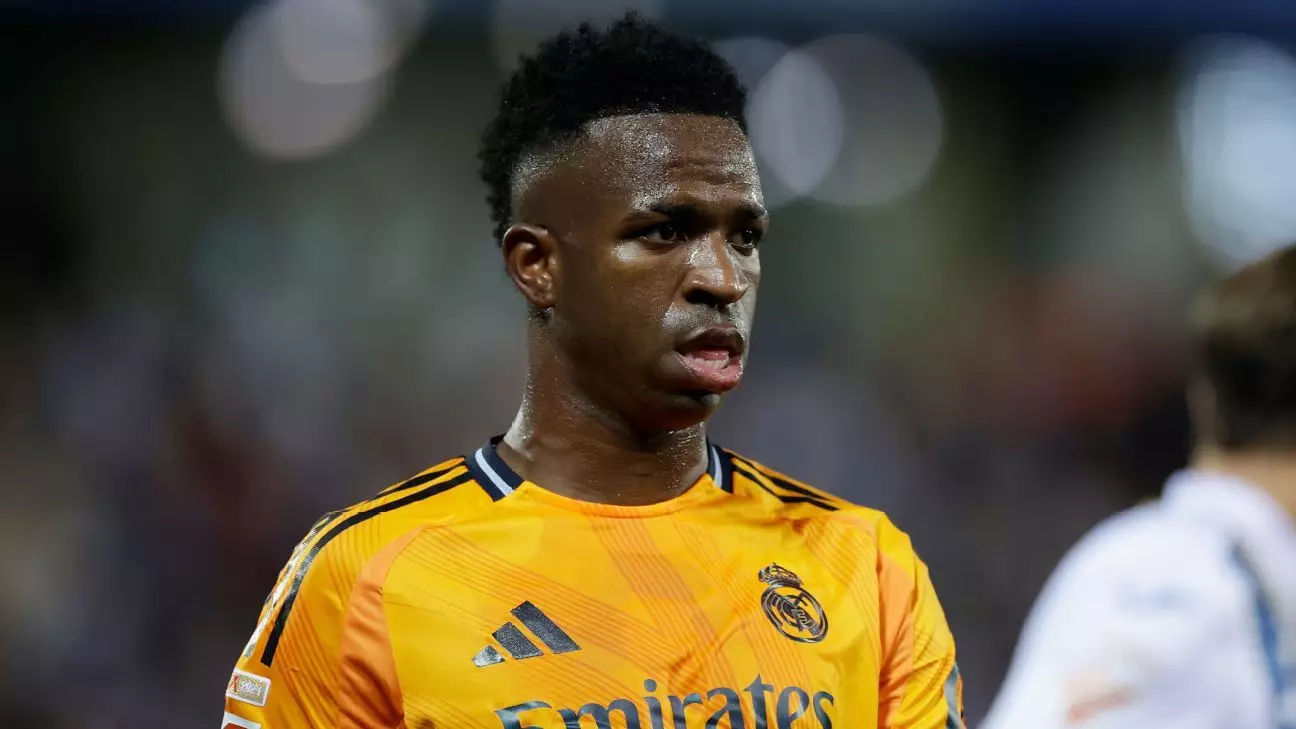Vinícius Júnior, the talented forward for Real Madrid, has found himself embroiled in controversy following comments made by Javier Tebas, the president of LaLiga. During a recent event in Buenos Aires focused on audiovisual fraud, Tebas accused Vinícius of engaging in piracy by allegedly watching a UEFA Champions League match illegally. This confrontation arose after the Brazilian star missed the high-stakes game against Liverpool due to a hamstring injury. Subsequently, he posted an Instagram story that seemingly depicted him tuning into the match via a Brazilian TV channel from his home in Madrid.
Tebas’ assertion that Vinícius committed a legal infraction by viewing the game outside the channels sanctioned by LaLiga has raised eyebrows and ignited a firestorm of discussion within the football community. In his remarks, Tebas insisted that the only lawful means of viewing such content in Spain is through Movistar Television. He further asserted that to access the game via a foreign channel, one would necessitate either a VPN or some type of satellite dish configured to bypass the established broadcasting channels.
In response to these allegations, sources have informed ESPN that Vinícius’ team is taking proactive measures to clarify the situation. They are reportedly urging Tebas to publicly retract his statements, emphasizing that the player does not engage in behavior indicative of piracy. According to the player’s representatives, Vinícius utilizes an international phone plan that provides him access to Brazilian broadcasts legally, without employing any VPN technology. This revelation is crucial, as it challenges Tebas’s assertion and makes a strong case for Vinícius’ compliance with broadcasting laws.
Vinícius’ staff also noted that they access the same Brazilian channels through the same legitimate service, further legitimizing their claim. It is worth noting that communication between Vinícius’ team and LaLiga has been established, with discussions underway to address the president’s incendiary claims and possibly mitigate any reputational damage that may arise from this incident.
This incident is not an isolated case between Vinícius and the LaLiga leadership. The player has previously clashed with Tebas over the league’s perceived failure to adequately address the issue of racism within Spanish football. The ongoing dialogue highlights an escalating tension between Vinícius and LaLiga’s administration, questioning whether appropriate measures are being taken to combat discrimination in the sport.
Moreover, this situation could have lasting ramifications beyond just this specific incident. It opens up broader discussions regarding the transparency of broadcasting rights, the implications of piracy allegations for players, and how such accusations can intersect with issues of social justice within football. As the debate unfolds, it is imperative for football governing bodies to consider the impact of their statements and actions on player welfare and public perception.
Vinícius Júnior’s contention against Javier Tebas serves as a reminder of the complexities surrounding media rights, player representations, and broader societal issues in sports. The outcomes of this dispute could potentially influence the dynamics between players and league authorities, and perhaps even encourage a reevaluation of how entities like LaLiga govern and communicate their policies.

